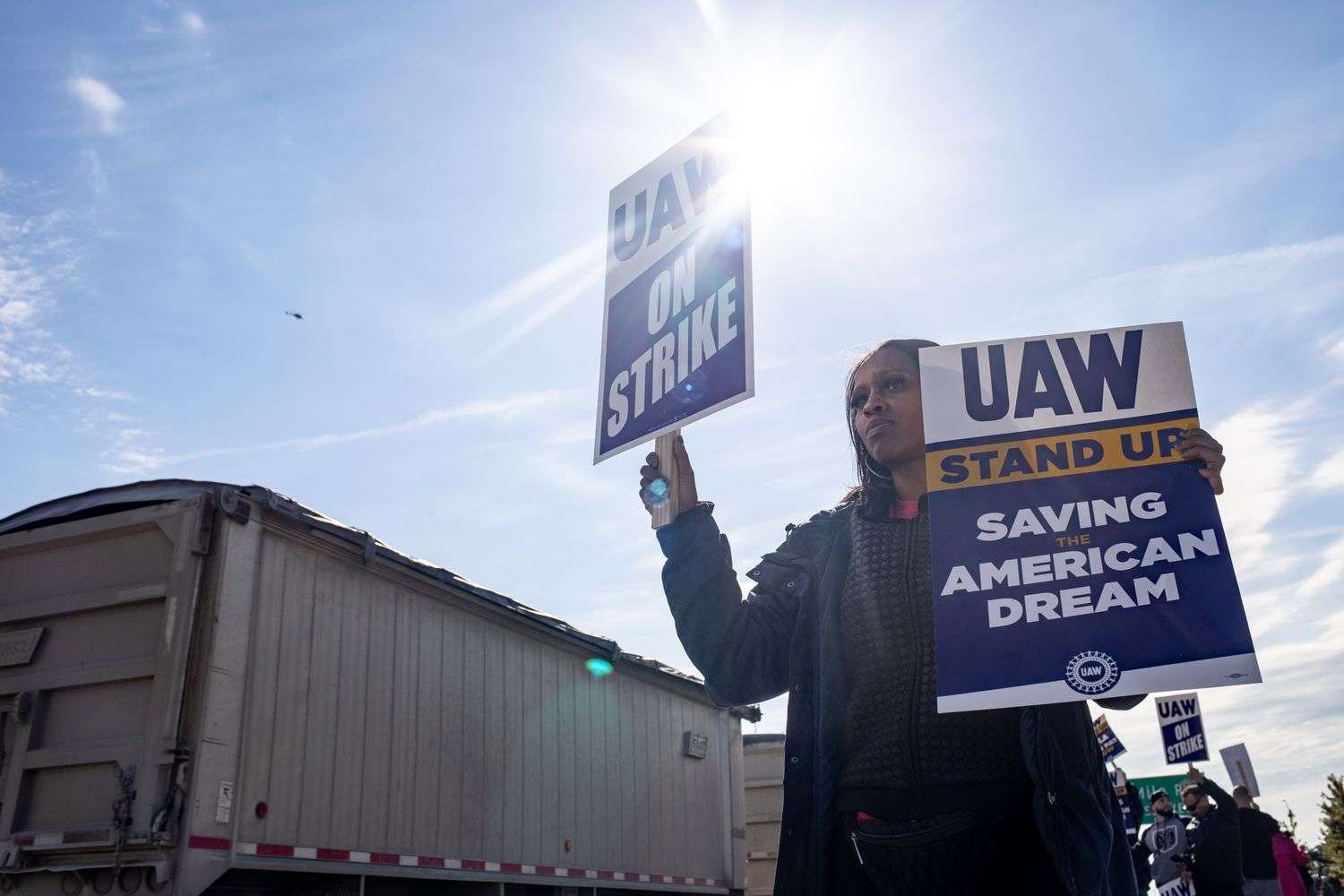
Highlights:
- Workdays lost to strikes in 2023 reached the highest since 2000.
- Anticipate more labor contract expirations in 2024, raising the likelihood of additional work stoppages.
- Despite significant gains, unions represent only 6% of the private sector and encounter substantial challenges.
- Noteworthy victories by auto workers, Teamsters, and screen actors in 2023 are expected to fuel continued activism in 2024.
Upcoming Contract Expirations and Potential Impact:
Major contract expirations in 2024 include communications workers at AT&T in April, Hollywood crew members in July, and dockworkers and Boeing machinists in September. Speculation arises that strikes in the autumn could influence the presidential election.
The Impact of Labor Actions:
While work stoppages may inconvenience consumers and disrupt company operations, the broader impact is likely minimal due to the private sector’s low unionization rate of 6%. The overall unionization rate is the lowest since records began in 1983.
Turning Tables in Favor of Unions:
The landscape appears to be shifting in favor of unionized workers in 2023, marking a departure from decades of organizing struggles. Major strikes against General Motors, Ford, and Stellates resulted in significant gains, including immediate raises and a trajectory for substantial wage increases by 2028.
Factors Driving Labor Activism:
Several factors contribute to the surge in labor activism, including post-pandemic inequalities, a tight labor market, and growing public support for unions. Inequalities exposed by the pandemic and workers’ increased leverage play a significant role.
Trends in Labor Actions:
This year witnessed the most significant number of strikes since the beginning of the century, with over 15 million workdays lost in 26 strikes by October. However, these figures are relatively modest compared to the peak in 1959, indicating a downward trend in work stoppages since 1970.
Challenges Faced by Organized Labor:
Despite recent successes, organized labor faces challenges in today’s economy, marked by outsourcing, offshoring, and the rise of the gig economy. Service industries, difficult to organize, employ six times more workers than manufacturing, mining, and construction combined.
Caution and Future Outlook:
While the surge in organizing and strike activity is notable, there are concerns about its resilience in an economic downturn. Harvard’s Lawrence F. Katz highlights uncertainties, emphasizing the role of politics and economic conditions. The long-term prospects depend on overcoming political polarization and uniting workers and the labor movement.
Conclusion:
While organized labor celebrates significant wins, challenges persist, with the overall impact hinging on economic conditions, politics, and the ability to foster unity among workers. The surge in activism represents a pivotal moment, and its longevity will shape the trajectory of unionism in the United States.




